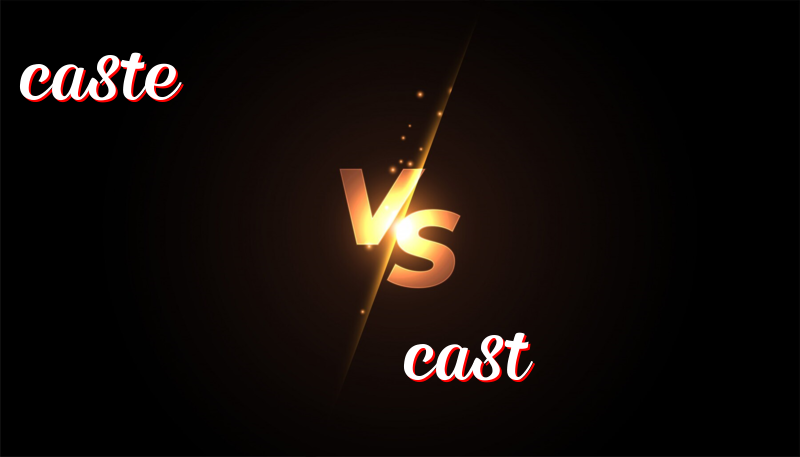Caste vs. Cast: Know the Difference
Caste vs. Cast
Let’s learn about the difference between the words “caste” and “cast.”
History:
– Caste: The word “caste” comes from Portuguese and Spanish, referring to a social class system originally used in India.
– Cast: The word “cast” comes from Old English, meaning to throw something forcefully.
How to Use Them:
– Caste: Used to describe a social class system.
– Cast: Used as a verb to throw or as a noun in a play or movie to describe the group of actors.
Trick to Remember the Difference:
Think of “caste” with an ‘e’ at the end as related to social class, and “cast” without an ‘e’ as related to throwing something.
Examples:
Caste:
1. In some countries, people are divided into different castes based on their family background.
2. The caste system can determine one’s occupation and social status.
3. It is important to break down barriers created by the caste system.
4. Discrimination based on caste is illegal in many places.
5. The concept of caste has been debated for centuries.
Cast:
1. He cast the fishing line into the water.
2. The movie director cast famous actors in the lead roles.
3. She could cast a spell with her magic wand.
4. The metal was cast into a new shape.
5. Let’s cast our votes for the best candidate.
Summary:
Remember, “caste” refers to a social class system, while “cast” is used to throw something or refers to actors in a production.

Leave a Reply
You must be logged in to post a comment.